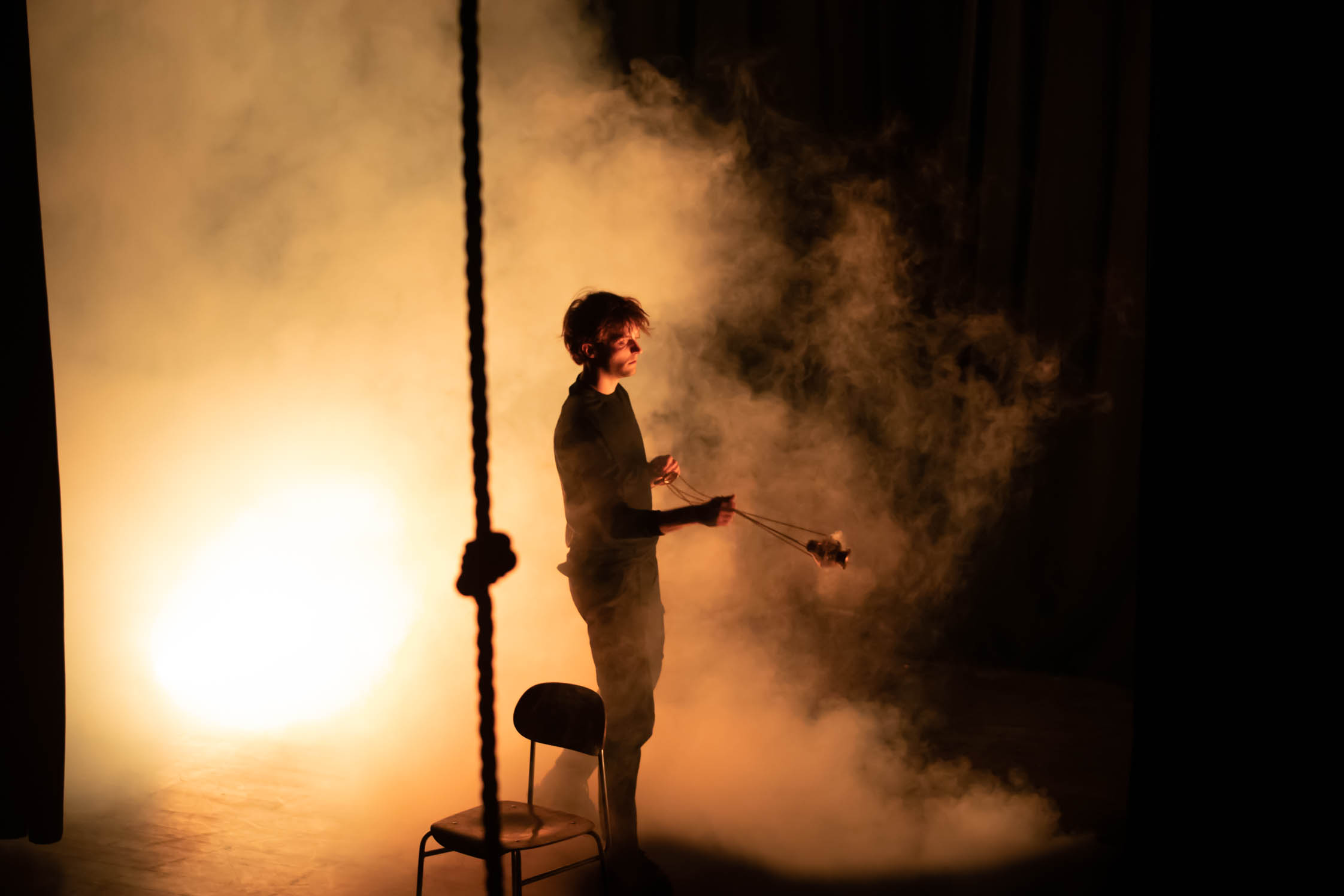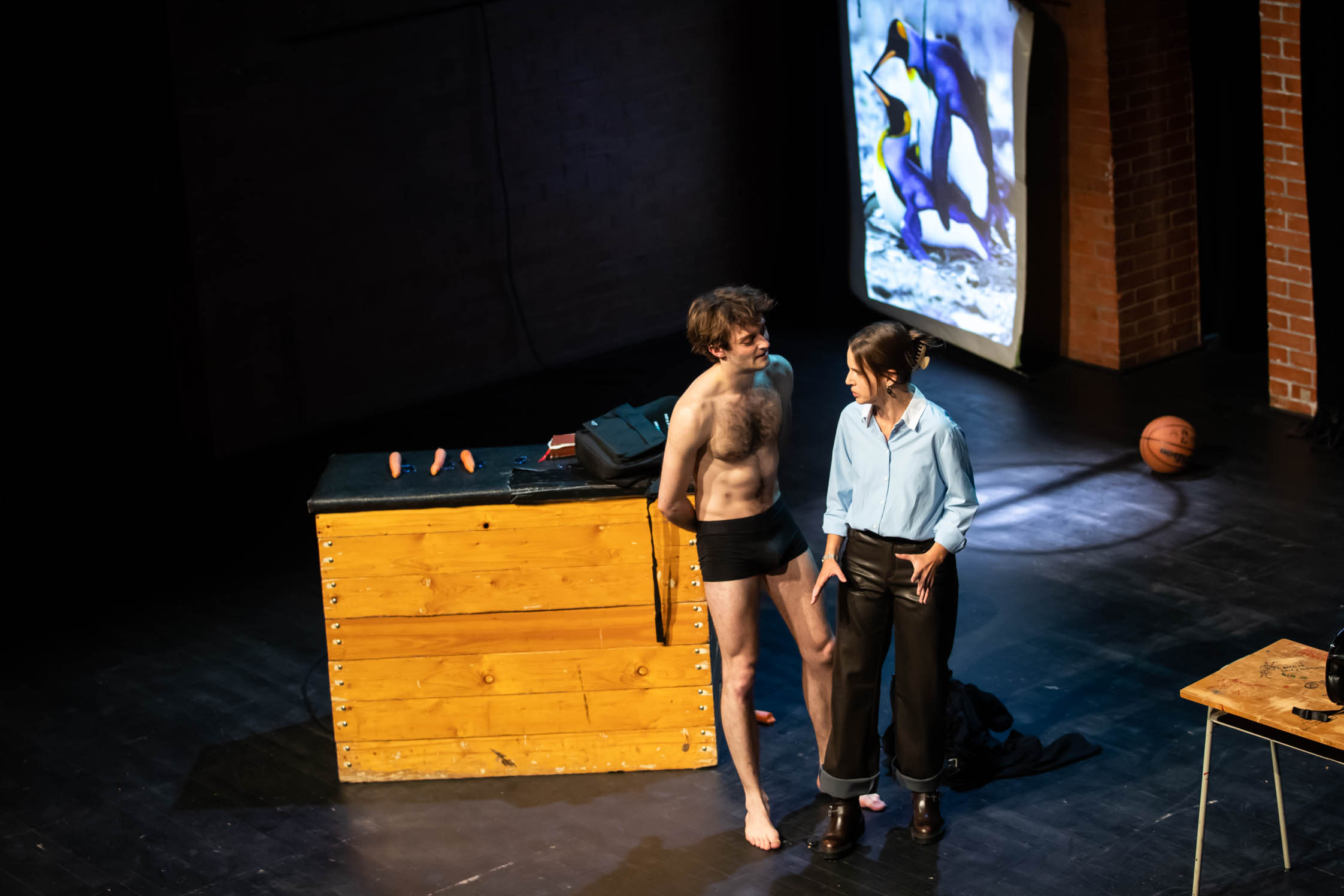
God Will Excuse Everything
Martyr, from the Academy of Performing Arts in Bratislava, brought to the stage of Husa na provázku a satire of religion, the school system, and human society. The production is dominated by great acting performances and an interesting set.
The production is based on a compelling text that focuses on Benjamin, a high school student who looks to the Bible for answers to his problems. However, his behaviour takes a radical turn, and those around him don’t know how to deal with his views. Criticise? Try to understand him? Concede to or defy him? The play works with big themes, but some of them are slightly trivialised in their conception and hidden behind a mixture of funny gestures. Despite that, the production manages to show the system’s inability to respond to radicalisation. The performance contains many scenes of conflict, which fortunately do not feel repetitive; on the contrary, the gradation to absurdity works very well here. The conclusion, however, does not bring the expected catharsis and feels rather awkward.
The production takes interesting liberties with the space of Husa na provázku. The actors leave the stage space several times and make their way to the balconies and to the stalls on the ground floor. The set is stylized to resemble a gymnasium, but the tools here seamlessly transform into whatever school or home environment the play requires at the time. Their use then adds the necessary dynamism and serves to sharpen some of the conflicts.
The production is dominated by great performances, especially by Bence Hégli. He gives a very believable portrayal of a teenager who is gradually consumed by fanaticism. His performance is energetic. The role is physically demanding, but in his performance he comes across as easy and natural. Veronika Mészárosová opposes him as the teacher Erika Roth. There is a strong tension between them. Mészárosová manages to balance her feelings of helplessness and her desire to fight Benjamin in her character.
Martýr provides an interesting viewing experience and many topics to ponder, but unfortunately only for those who understand Slovak. The subtitles shown were poorly timed and in some places contained mistranslations. It would be advisable to better support this technical part of the performance in the future. However, despite this shortcoming, the production has momentum and keeps the viewer’s attention until the end.


